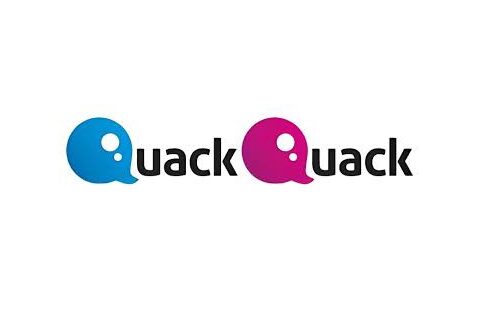Here’s the interview snippet from the interaction with Mr. JPS Kohli, Founder and CEO of SkillUp Group.
Saumya: Tell us about the journey of SkillUp Online since its inception?
JPS: As a transformational learning influencer with 25 years of experience in cloud-based learning systems, we founded SkillUp in 2016. This experience led me to see a gap in the market. The pendulum had swung from face-to-face learning in classrooms (which is limited in numbers) to scaling up through online self-paced learning (which offers learning to anyone, anytime, anywhere).
However, there was a problem; completion rates for online courses were very low, and deep learning at scale was not being achieved. I spotted that what was missing was the human touch and created SkillUp in 2016 to fill this gap. The business’s learner-centric training methodology balances a technology-driven ethos with a human-centred approach. To ensure learners remain relevant in this rapidly changing world, it focuses on future skills training in fields such as artificial intelligence, data science, machine learning, cloud computing, cybersecurity, etc.
Additionally, it offers human skills training that enables professionals to develop the leadership, team building, time management, collaboration, problem-solving skills, etc. that businesses desperately need. In 2019, SkillUp then furthered its vision by launching its dedicated training platform – SkillUp Online. SkillUp Online is a hybrid learning platform that focuses on learning outcomes (skills, practical experience, and certifications) and learner outcomes (where improved skills, etc. facilitate access to better career opportunities, higher salaries, and futureproof jobs). Through SkillUp Online, SkillUp’s learner-centric approach has proven its worth.
Human mentors are available to nudge and support learners when they need it. And with 67%+ completion rates – an enviable statistic in comparison to MOOC completion rates of 3%-5-% – the business truly is enabling deep learning at scale. SkillUp now operates in the US, Europe (based in Portugal), and India. The company has partnered with top organizations, including Microsoft, IBM, and Google for technical learning content, and NASSCOM and Pacific Lutheran University (USA) for extended reach.
Saumya: What is the company’s revenue? Do you plan to raise funds?
JPS: SkillUp’s revenue for 2022 was $10m. The business is currently funding its growth through profits. However, the growth plan is to scale up in 2023 and the leadership team intends to fund this via investment from a partner who is philosophically aligned with the SkillUp approach and learner-centric ethos.
Saumya: What cutting-edge technology does the business employ?
JPS: Through SkillUp’s dedicated focus on learner-centric training, the SkillUp Online platform is offering highly effective blended and hybrid learning. Already, the platform is combining high-quality technical training content (developed with industry partners such as Microsoft, IBM, and Google) with accessible online mentoring, one-to-one human interaction, and peer-to-peer communities. Recent projects with NASSCOM and IBM SkillsBuild are outstanding examples of the success of SkillUp’s technology-driven, human-centred approach. Through these initiatives alone, the business has trained over 125,000 learners and achieved 67%+ completion rates, which is outstanding in contrast to the MOOCs who enjoy only 3%-5% completion rates. Focusing specifically on learner outcomes – higher employability, better salaries, and improved promotion opportunities – SkillUp is also bringing futuristic and disruptive technologies to the learning space. Already it is utilizing hybrid learning formats that blend self-paced learning, online content, peer-to-peer interaction, and online instructor-led sessions via the Metaverse, with personalized mentoring at identified stages of the learning process.
However, the business is also now looking to practice what it preaches. Fueled by its learner-centric approach, it is investing in tech to better understand the learner. 2023 will see SkillUp work on designing, building, testing, and introducing AI psychometric learner profiling using AI-based profiling to identify learner interests, capabilities, and learning styles. Towards the end of the year, it will then expand its research and development focus to look at hyper-personalization through real-time adaptive experience using AI, machine learning, and big data analytics. And, in 2024, the business will next look at introducing AI-based instructors for teaching that speak, interact, and screen-share.
Saumya: How do you intend to spend this year?
JPS: In 2023, SkillUp is investing in researching, preparing, piloting, and launching AI psychometric learner profiling. Towards the end of the year, the business will also commence a similar process to introduce hyper-personalization, with a view to extending both areas of technology to support AI-based instructors for teaching in 2024.
Saumya: Why does SkillUp Online stand out among edtech companies?
JPS: Top-level, through a technology-driven, human-centered approach, the business is achieving deep learning at scale and ensuring learners are armed with employable skills and practical experience that get them jobs. SkillUp’s obsession with the real success of the learner sets the business apart from the many training providers who have implemented course library/subscription models and free/low-value unsupported training. By focusing on learning outcomes and learner outcomes, the business ensures its balanced offering of technical and human skills training – supported by real mentors – builds the sought-after skills and practical experience employers need. This means its learners are cross-skilling, upskilling, and reskilling into better jobs with higher salaries more quickly than they would have if they’d trained elsewhere.
SkillUp doesn’t just want learners to enroll for courses… the business wants them to learn and then succeed in their careers. If a learner wants to be a data scientist. SkillUp wants to be a key part of their journey to becoming a data scientist. This is not about just getting enrollments; the learner outcome matters.
Saumya: What will happen to the ed-tech sector in the future?
JPS: Ed-tech is in a state of disruption. Enrollments in colleges in the US have been dropping over the last 3 years. Plus, the industry is tackling a severely fragmented market, with technically adept Generation-Z learners fully aware that they have their own personal learning styles, preferences, and needs. The challenge for education is how to cater to these individual differences effectively. At the same time, with the disruption that’s been initiated globally by artificial intelligence, workers and graduates are now asking themselves, “How can I remain or be relevant?” Future skilling in artificial intelligence, data science, machine learning, cloud computing, cybersecurity, etc is the answer.
However, future skilling also includes enhancing these technical skills with strong human skills such as leadership, collaboration, remote working, team building, time management, problem-solving, etc. It is this combination of future skills that organizations need now and will need even more in the future. SkillUp believes this can only be achieved by putting the learner at the center, providing them with the power of choice over what and how they learn, and giving mentored support when they need it. To facilitate truly deep, customized, training at scale, SkillUp is therefore also investing in AI and machine learning to enable the SkillUp Online learning platform to create a customized experience for each learner based on data they’ve provided during their previous learning activities. Learners will still be learning the same content as others on a course, but their experience will be tailored to their learning needs.
Saumya: What are the Ed-tech sector’s most recent growth and developments?
JPS: Many of the players in the Ed-tech sector are growing and developing via a library consumption model. They provide a catalog of online courses and learners pay a monthly subscription to access as much training as they wish. SkillUp believes this model is not working, however, and MOOC completion rates of 3%-5% provide evidence to back this up. SkillUp instead, focuses specifically on the learner.
Saumya: How does technology aid in upskilling?
JPS: People are used to technology making recommendations based on their user profile; Netflix is an excellent example. Learners in the ed-tech sector are no different and they are now expecting this tailored experience in the learning arena too. Currently, technology is providing access to learning at scale. People can enroll for a self-paced course anywhere and complete it in their own time. In line with the ‘Netflix experience’, SkillUp believes that technology can also provide invaluable insights into learner behavior, learner preferences, and learner needs. Through the power of machine learning and the big data that is available through large cohorts of learners, SkillUp is planning to use technology to tailor custom learning plans for individuals and offer them choices in how they learn and how they are supported to learn.
Additionally, by combining the power of technology with a mentored approach to learning, SkillUp will achieve deep learning at scale. This will provide learners with the skills, practical experience, and certifications they need to get highly-paid jobs and pursue rewarding careers. And they will achieve this more quickly than if simply left to pursue unsupported self-paced learning.








